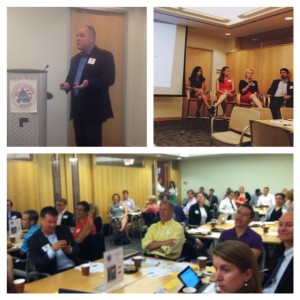You’d think we’d have the hang of it by 2014, right? But as social media continues to evolve, so do the tools we use to participate and the audiences that we try to reach. This can be even more challenging for advocacy professionals where social media is often just one of a long list of responsibilities.
So we were thrilled to have Colin Delaney present to a packed room on how social media can help with advocacy at Advocacy Leaders Network last week. Beginning his talk with the importance of monitoring the online conversation, Delaney went through several benefits of listening, including:
- Identify trends and patterns
- Get early warnings on key issue
- Identify influencers
- See what content and themes are motivating people

Trending Now: Learn What Your Supporters Really ‘Like’ Online
Of course, it’s what you do with that information that makes it valuable, so after intelligence gathering, Delaney suggests using A/B testing to see what your supporter base responds to most through organic content or social advertising. Even the best digital marketers in the world often test they hypotheses only to find out they were wrong, Delaney reminded us, noting the best performing subject line in the Obama ’12 presidential campaign was “Hey”.
Our panel of experts took the stage next, where we heard these top takeaways loud and clear:
Americans’ attention spans are at an all-time low. Keep that in mind when crafting your messages for social.
- Get to know your audience on each platform. What your Twitter audience likes might be different than your Facebook or Instagram audiences.
- Use social to connect directly with influencers, including journalists. It’s really about relationship building.
- Keeping a steady pace is important. Have a strategy and don’t feel like you have to be on every channel.
- Use 80/20 rule: 80% fun, quirky (but relevant) info, 20% serious and with an ask. Gary Vaynerchuk’s “Jab, Jab, Jab, Right Hook: How to Tell Your Story in a Noisy Social World” explains this concept.
Join us next time when we hear experts (including past Members of Congress!) discuss Hollywood’s Washington vs. Ours: How Hollywood’s Version of DC Impacts Your Efforts in Congress!